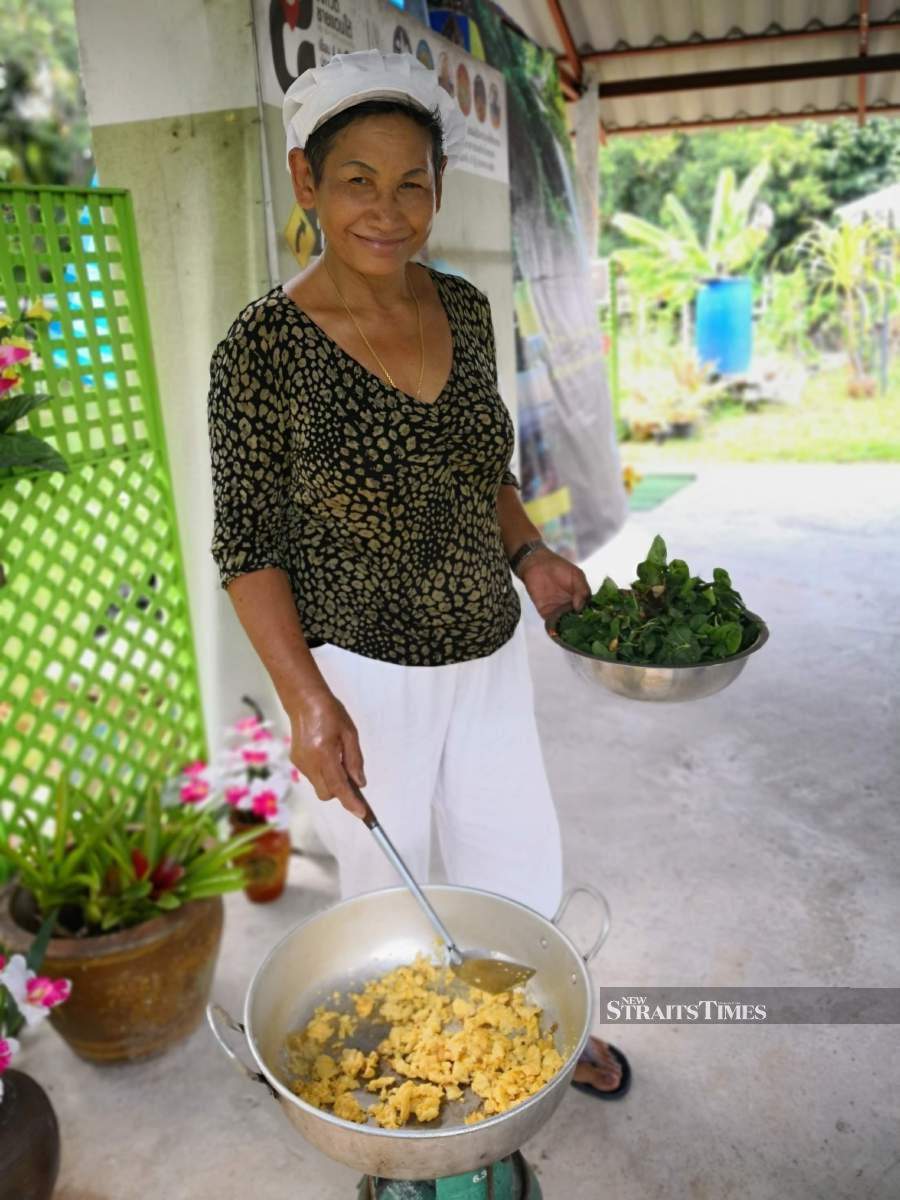“WELCOME to Sai Khao. Welcome to Sai Khao. Have a seat. Food will be ready soon,” quips Nonphan Promsuk excitedly as soon as I come within earshot. There’s a delicious smell wafting in the air as I make my way through the spacious open-sided zinc-roofed bulding.
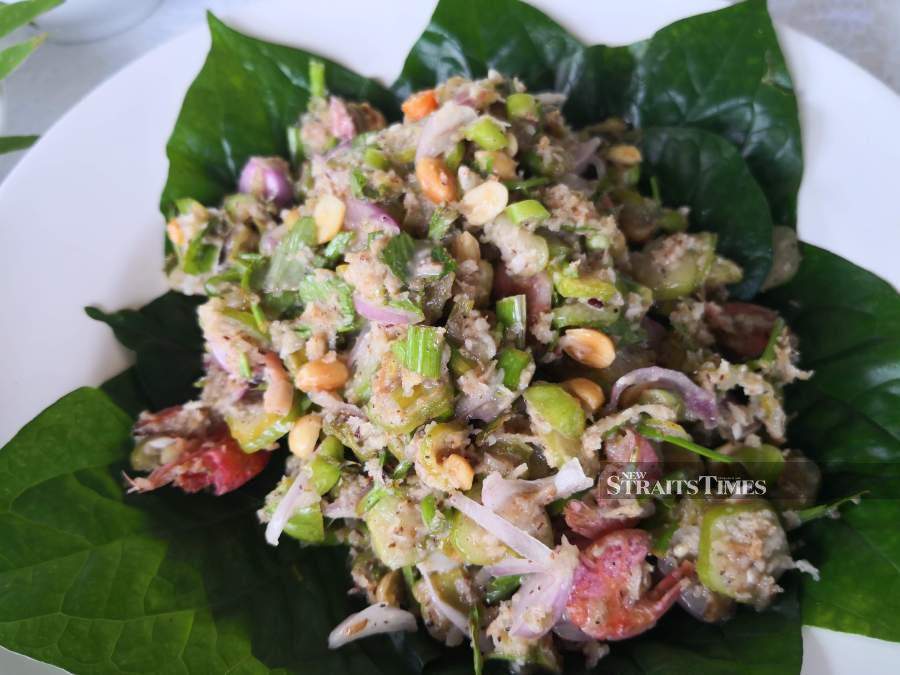
Filling the stand-alone structure, which fringes flourishing rubber estates, well-tended vegetable plots and fruit orchards, is a team of women who are all members of the Sai Khao Agricultural Housewives Community Enterprise (SKAHCE), a cooperative established by Nonphan to help improve the lives of the women in her impoverished community.
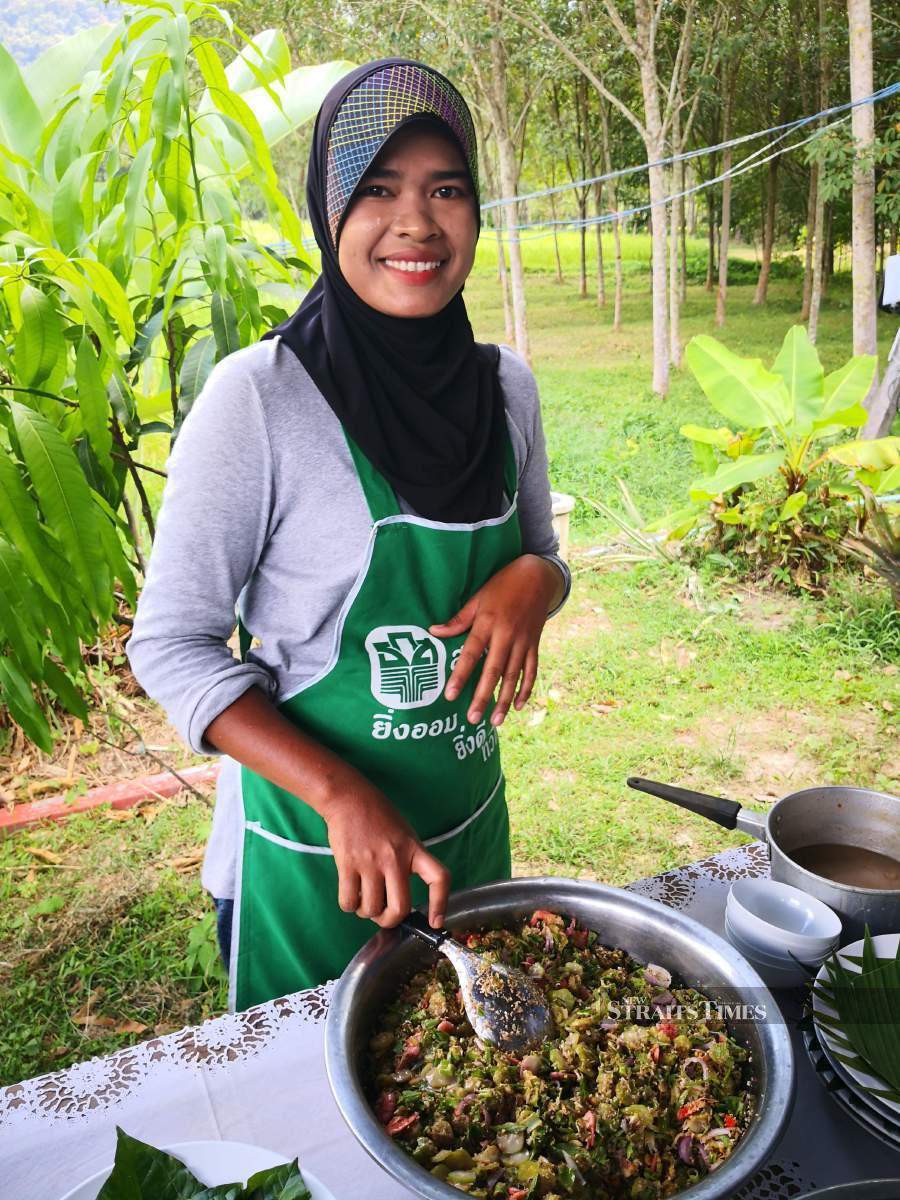
The population of Sai Khao district is small, just a little more than 5,000, while the place considered as the town centre is nothing more than just a short single street lined on both sides with small businesses.
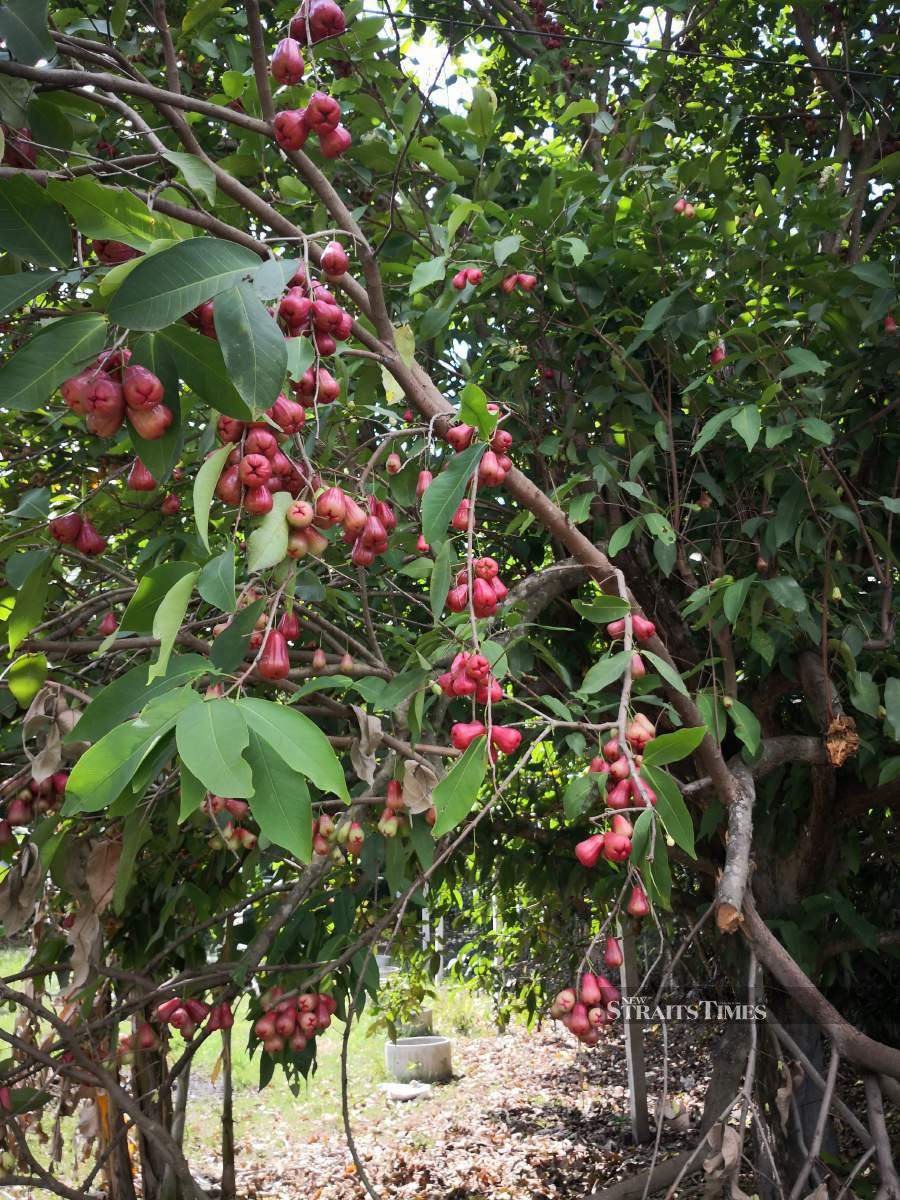
Basically an agricultural-based society, the lives of the people here are heavily intertwined with rice farming and fruit-growing activities.
The warm and friendly atmosphere here which are often missing in large cities, however, more than make up for the lack of economic clout.
In fact, the Sai Khao people here in Thailand's deep south Pattani province are proud that the government has long recognised them as a model community living in a place where people of different faiths co-exist in peace and harmony.
LOCAL ORGANIC PRODUCE
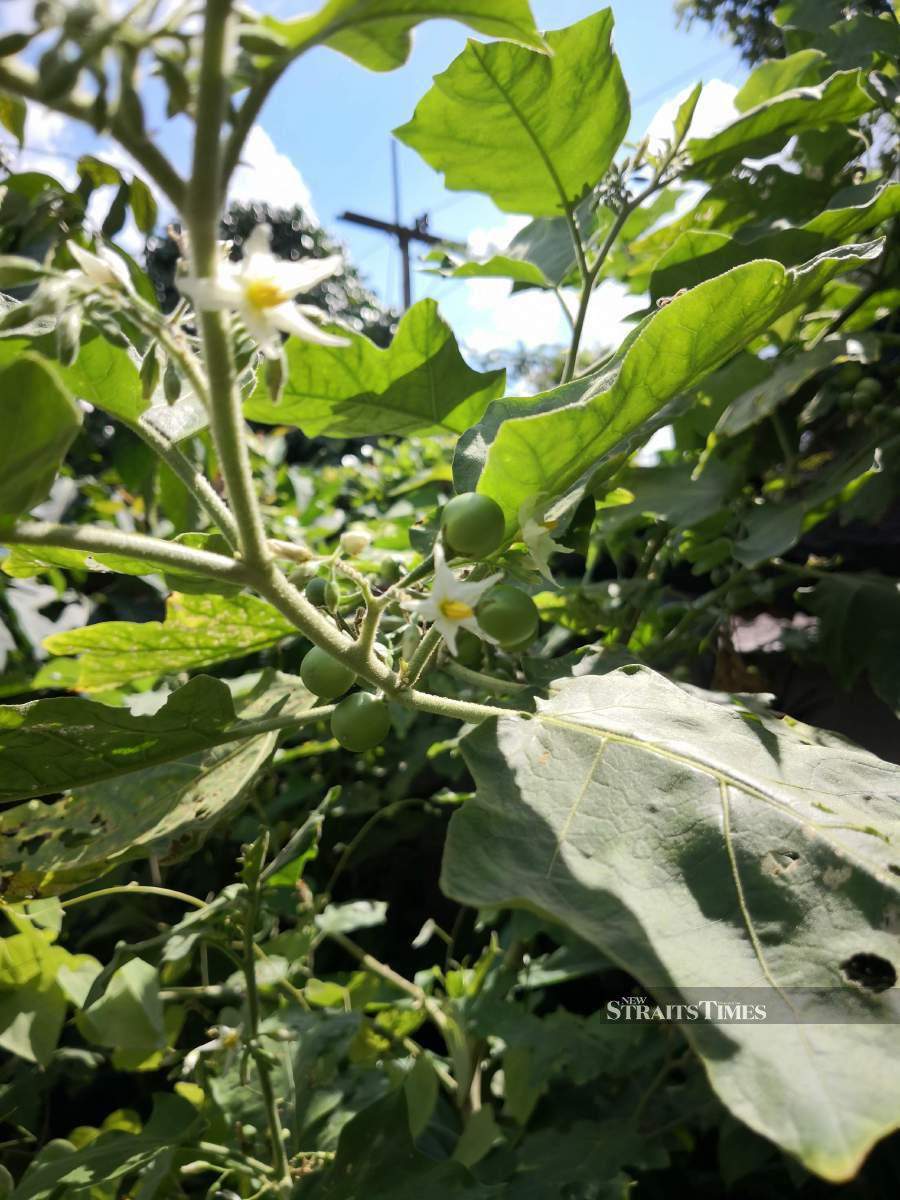
“All the things served here are organic and free from harmful fertilisers. The vegetables and fruits were harvested and plucked less than an hour ago. It cannot get any fresher than that,” explains Promsuk proudly as the mouth-watering dishes start piling on the table.
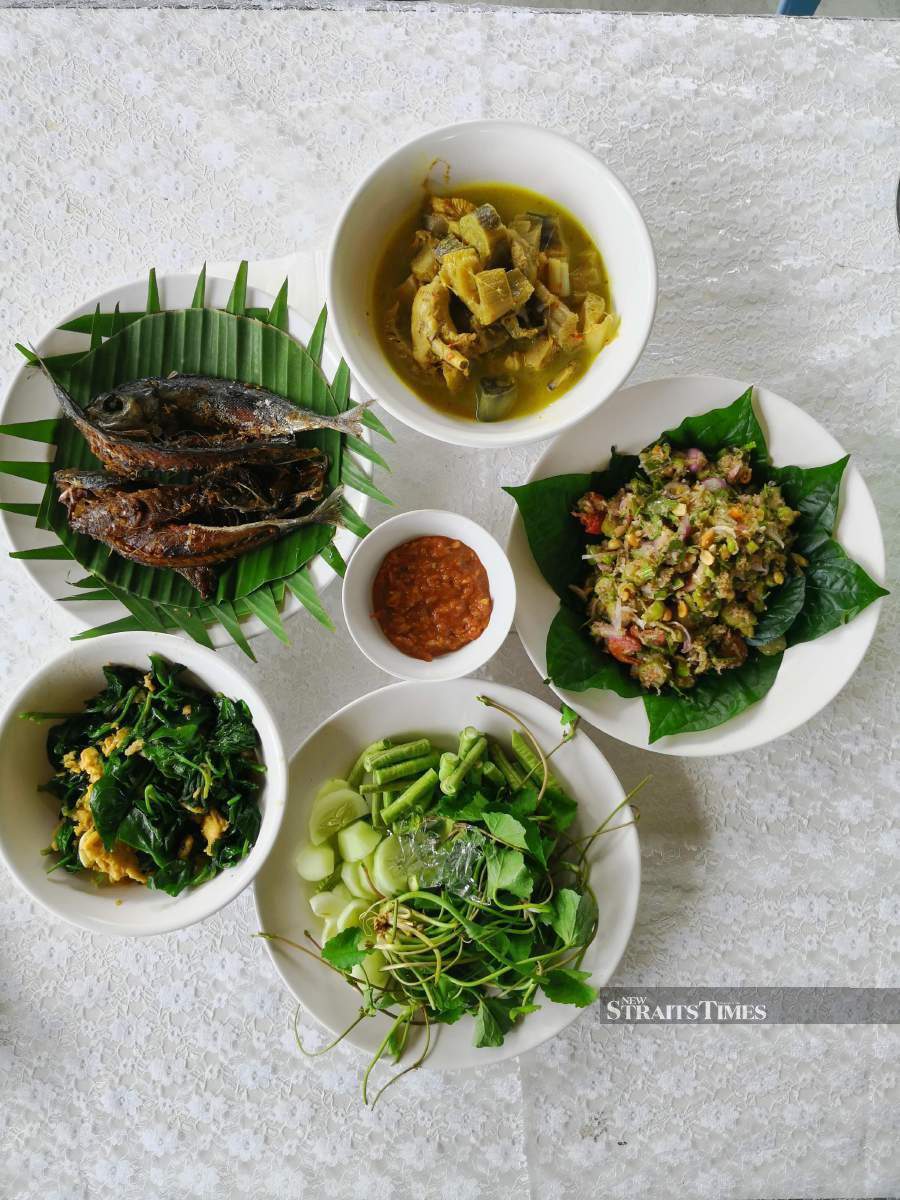
During the course of the meal, which comprises a selection of simple yet splendidly prepared local favourites like curry chicken with diced yam stalks, vegetable salad with roasted peanuts and dried shrimp, I’m served a distinctly unique sour-sweet drink.
When quizzed, Promsuk produces a bright yellow fruit that looks very much like the asam gelugor which features prominently in Malaysian cooking.
According to the 58-year-old-housewife, the plant bearing this fruit grows in abundance in south Thailand's lowlands that receive year-round sunlight and rain.
She explains that the drink is prepared by slicing the mangosteen-shaped fruit, known scientifically as Garcinia cambogia, into slices and putting them out to dry in the sun for three days.
After that, the dehydrated slivers are boiled with sweet palm sugar for about an hour. Served cold, the locals believe that this popular drink has slimming effects and provides a variety of health benefits.
CRUCIAL GRANTS
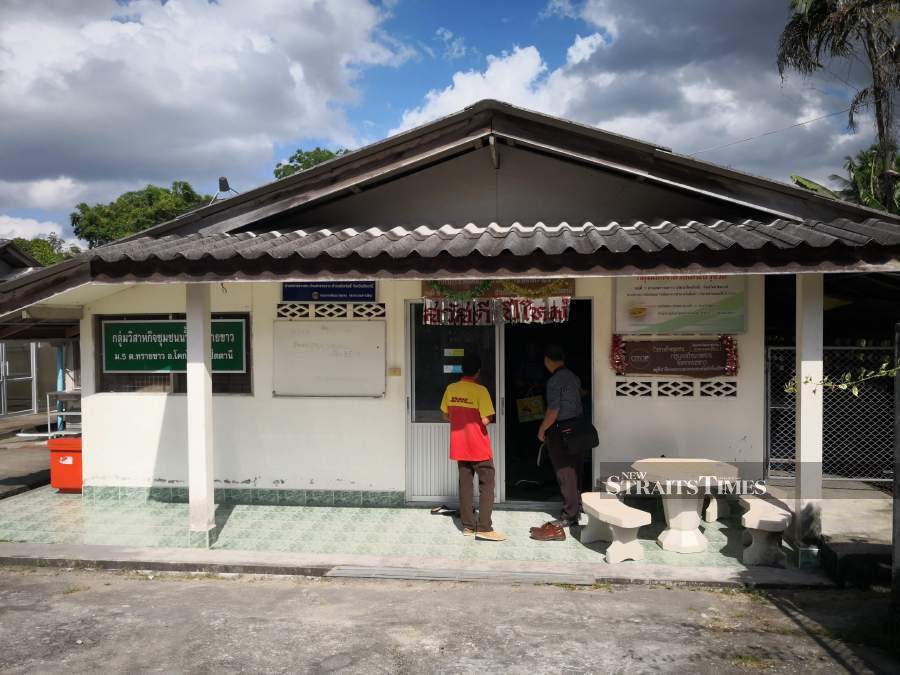
“It all began when our community enterprise became only one of eight entities eligible to receive small but extremely crucial grants from the Southern Thailand Empowerment and Participation (STEP) project which is part of the United Nations Development Programme (UNDP),” adds Promsuk.
The STEP Project, developed in 2009, works in partnership with various government departments, academia, civil society and local stakeholders to build social cohesion in Thailand's deep southern regions including Pattani, Narathiwat and Yala. The small grants it provides aims to alleviate economic stress and help foster social cohesion among the multicultural communities through the development of sustainable livelihoods.
These grants, sourced from the Japan-UNDP Partnership Fund, assist women collective groups in local communities, like the one here in Sai Khao, to become more resilient and independent by capitalising on the natural resources in their respective areas.
“This way our women can gain useful skills to boost their livelihood and significantly contribute as co-breadwinners of their families. This is a time-proven way for many poor families in this region to escape the poverty trap,” says Promsuk, before citing a recent report which shows a marked improvement in Pattani province's position in the latest UNDP Human Achievement Index for Thailand.
COMMUNITY ENTERPRISE STARTS
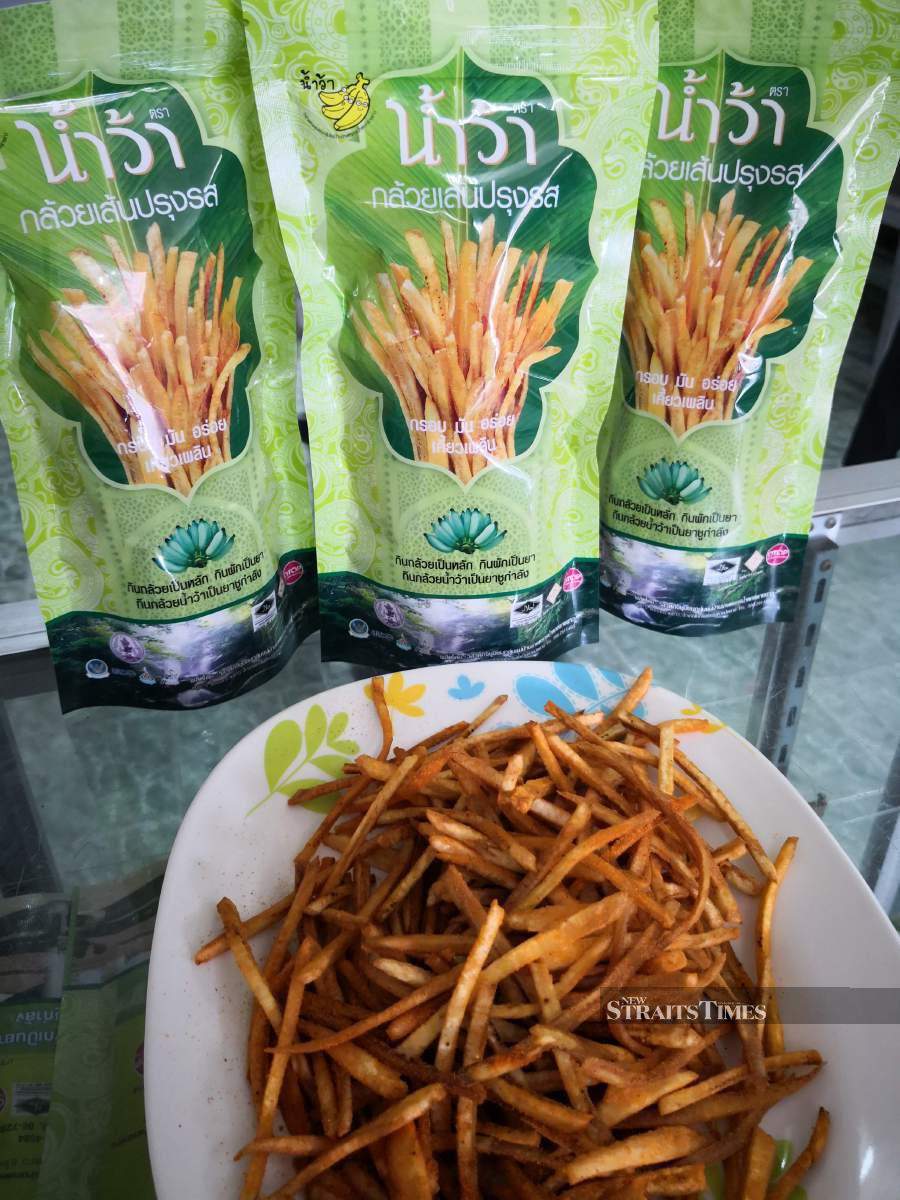
Turning back the clock by a decade, Promsuk recalls the time when a sudden brain wave prompted her to explore ways to add value to the Garcinia.
“Back then, the fruits were sold for only 5 baht (RM0.65) per kilogramme as it grew in abundance in Sai Khao district and was only used as a subsidiary ingredient in local dishes.
“I organised a gathering of 25 housewives who wholeheartedly supported my business model to preserve and sell the fruit when it became scarce outside its normal fruiting season. SKAHCE came into existence during that meeting,” explains Promsuk.
As none of the 26 SKAHCE founding members had any formal business training, Promsuk and two other members were invited to attend a three-day training session organised by the STEP Project.
The trio were trained to draft project proposals as well as briefed on matters related to project implementation, financial management, product development, product standardisation, packaging and marketing.
Elaborates Promsuk: “The training was very insightful as it introduced innovative ways and techniques to help us develop new products as well as identify the appropriate government departments for us to get proper product certification.”
As more than 80 per cent of the population in southern Thailand are Muslims, it’s extremely important that the products are halal-certified,” she adds. “This certification also allows our products to penetrate other Muslim markets around the region like Malaysia and Indonesia.”
Within a matter of weeks of undergoing the course, the Sai Khao women began putting the things they learnt to good use.
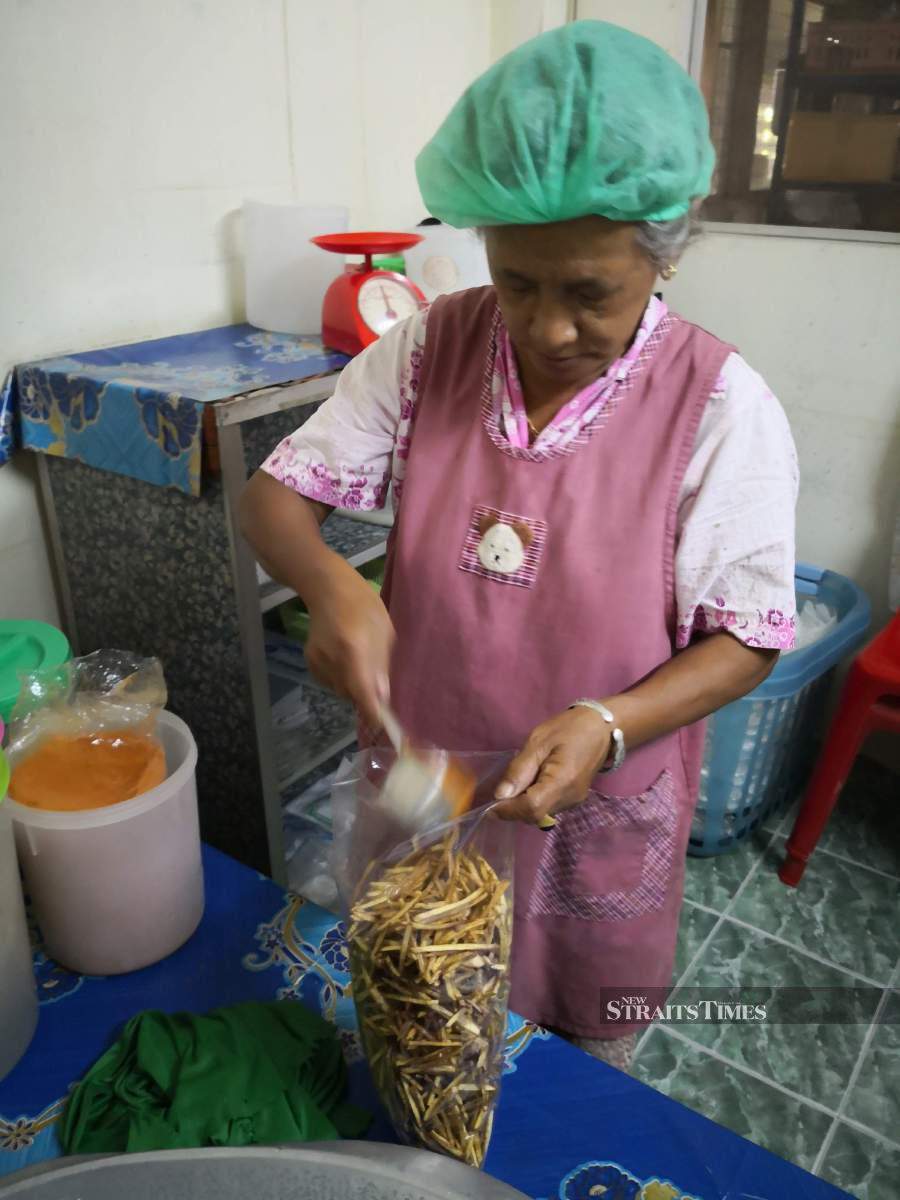
They developed a new spicy and sour Garcinia product and touted it as a snack that had health benefits like encouraging weight loss and lowering blood cholesterol levels.
Capitalising on their success with Garcinia, the community enterprise began looking at other local agricultural products that are found in abundance in Sai Khao.
Through sheer grit and determination, they managed to successfully process and add value to bananas and taling pling. The latter is a type of miniature starfruit which practically has no commercial value in its natural form.
Encouraged by my keen interest, Promsuk invites me to visit the SKAHCE production centre as soon as lunch is over.
With the destination located just a stone's throw, we make the journey on foot. Walking would also give me a chance to get a first-hand feel of the local village life as well as see for myself the abundance and variety of fruit trees that have now become invaluable sources of raw material for the enterprising women.
The production centre takes the form of a single storey building surrounded by a spacious compound filled with several rudimentary solar-powered heating structures that the women use to dry their products during the preliminary processing stages.
Stepping into one, the extremely warm conditions conjure thoughts of sauna rooms in spa treatment outlets.
The translucent Perspex roof encourages sunlight penetration while the lack of windows and the double locking mechanism of the singular entry and exit point ensures that all the heat is trapped within.
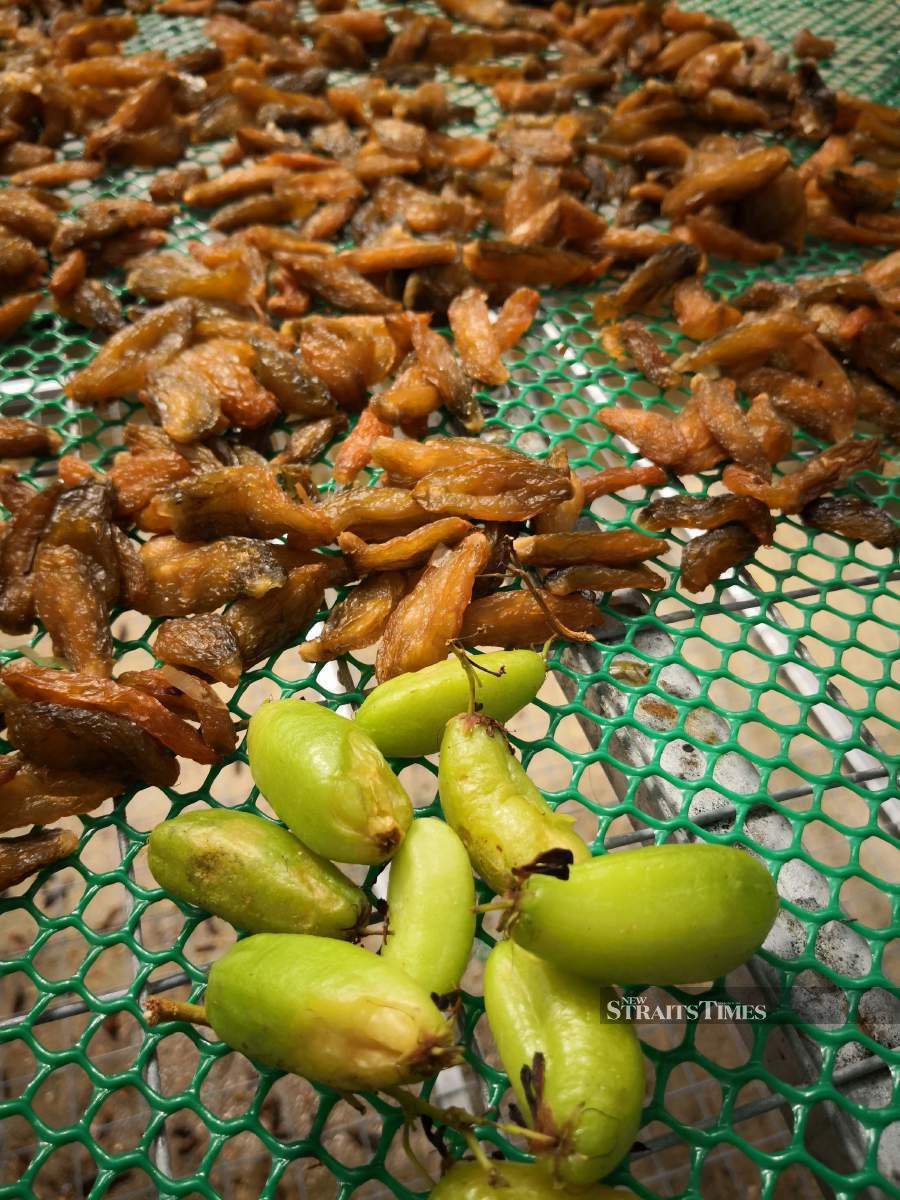
This ingenious drying method isn’t only environmentally-friendly but also helps the collective reduce utility costs and maximise profits.
Indoors, I find a group of women hard at work arranging attractively designed packages of banana crisps and sweetened taling pling onto shelves at a corner that has been converted into a retail section for walk-in customers. They look up and smile warmly before shifting their concentration back to their tasks.
STAKEHOLDING MOTIVATION
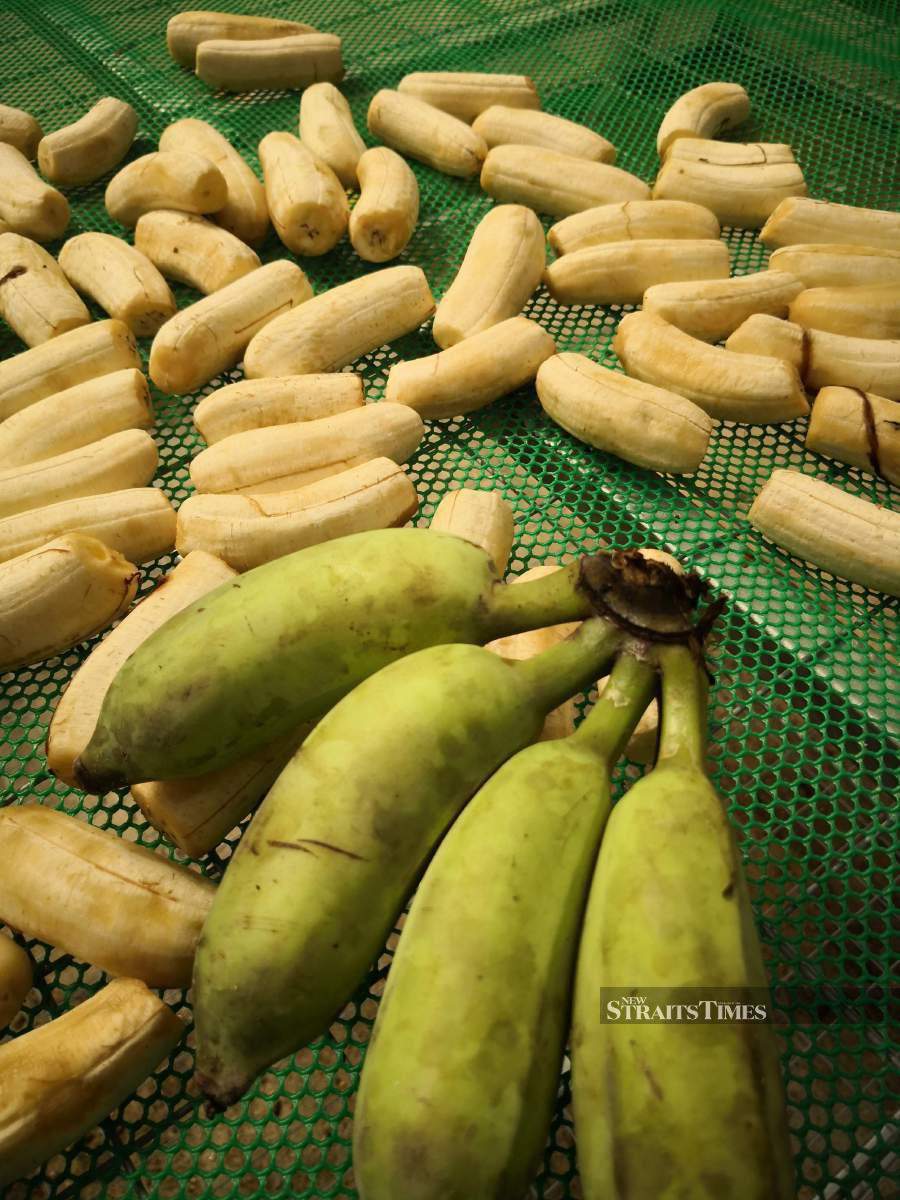
During the short guided tour, Promsuk reveals that there are now about 60 female members in the community enterprise, with their ages ranging from the early 30s to late 70s.
“Each and every one of them have a stake in this business and that motivates them to work harder and in a more cohesive manner. In the long run, this helps to preserve harmony and improve prosperity in our village.”
A brief chat with a middle-aged woman who has been with the collective for more than six years offers some interesting insights.
She expresses sheer happiness in her work which allows her to mingle with like-minded friends and at the same time, earn a decent sum of money.
Proof of SKAHCE as a shining example of success becomes clear when she proudly elaborates: “In the past, I used to work in the rice fields. It was hard work. My income then was uncertain and saving for the future was out of the question. Today, things are very different. All of us here enjoy a stable income and bring home a monthly pay cheque in excess of 5,000 baht (RM650). Apart from giving us access to luxuries that we couldn’t afford before, the money comes in handy during rainy days.”
A typical eight-hour day starts at 9am when the house chores are done. By then, the men would have left for work in the fields or orchards and the children would already be in school. The idle time is then put to good use at the SKAHCE.
Our walkabout ends in the kitchen area, a place that Promsuk likes best in the entire building.
“This is the beating heart of our business. A large portion of the grant was used to improve this section. It involved the installation of a new fully equipped kitchen with effective plumbing, water storage systems and waste treatment facilities. This is the place where we experiment and develop all the new products you see today at the retail section,” she adds, caressing the spotlessly clean stainless steel table top lovingly.
Passing by the retail counter on my way out, the opportunity to sample some of the products prove too tempting to resist.
At a glance, the banana crisps look like brownish straws of grass due to their long, thin and uniformly-cut attributes. At first bite, however, they unleash a myriad of flavours.
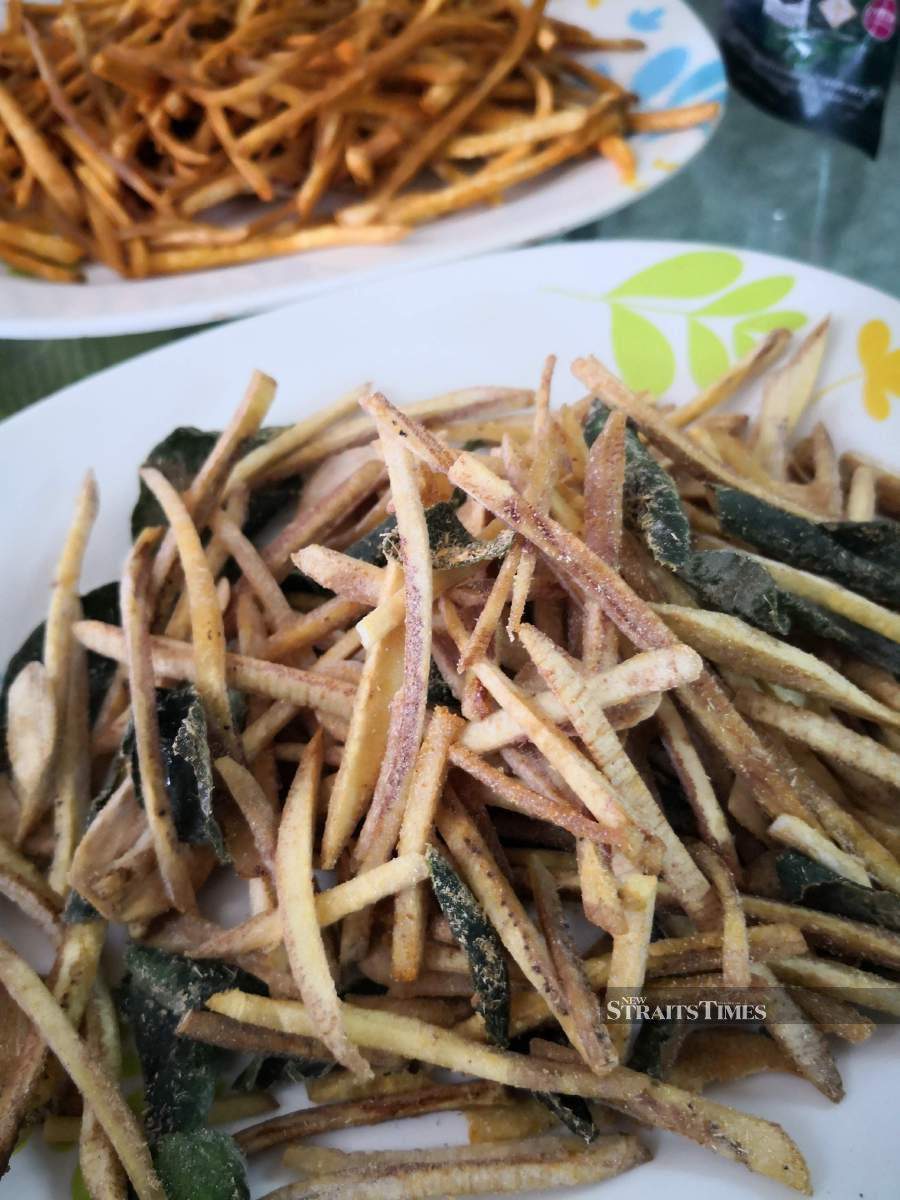
Thanks to the novel processing techniques used by the community enterprise here in Sai Khao, the flavours bear hints of cinnamon and walnut while the aromatic scent reminds me of mango flowers in full bloom. The banana crisps are marketed in two versions — natural and spicy. Both are equally tantalising.
At the end of the unexpected tasting session, I leave the SKAHCE production centre with a warm feeling in my heart and a knapsack filled almost to the brim with purchases.
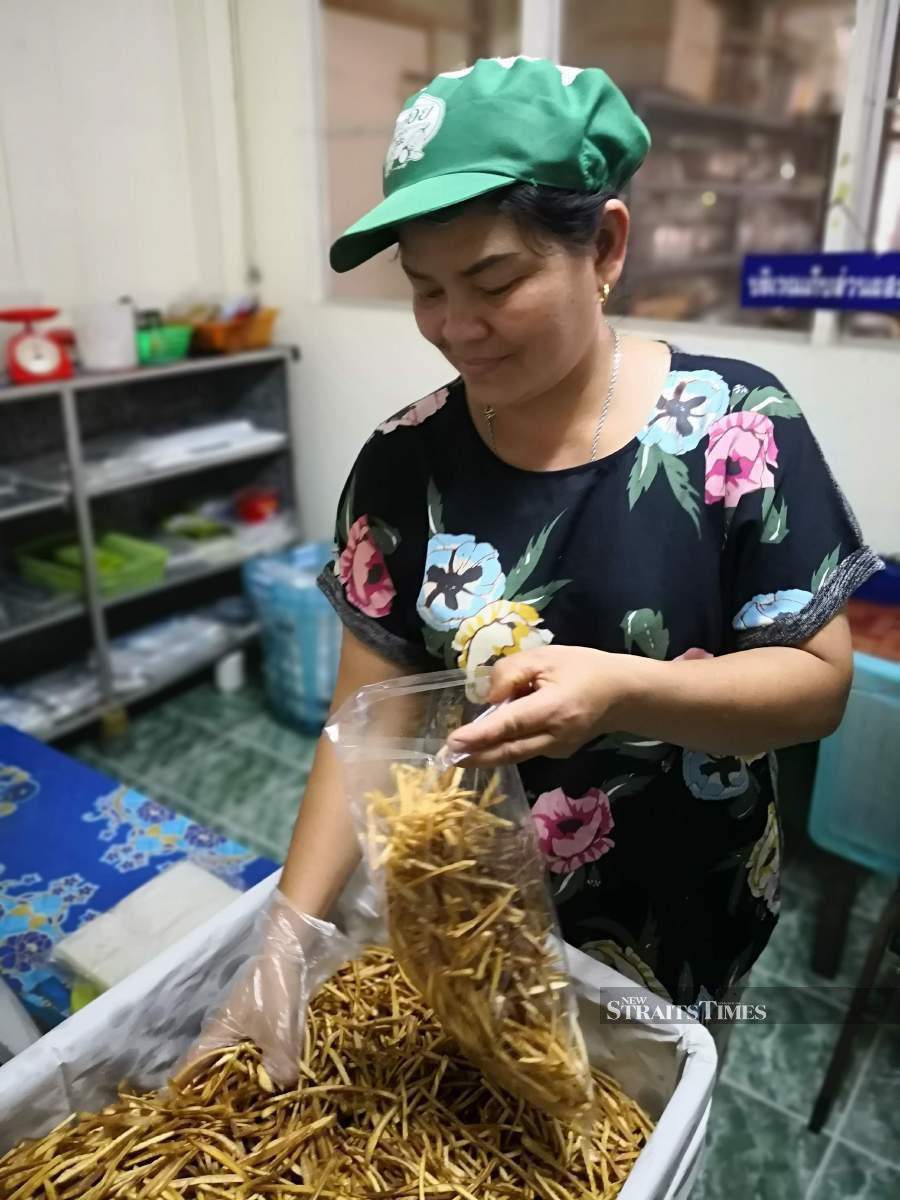
Apart from their friendly nature, the enterprising women of Sai Khao have proven their mettle by embracing change to better their own lives as well as those of their families.
With the continued mentorship, guidance and technical assistance from the authorities, such as experts from the Prince of Songkhla University, these resilient and determined women of the south are at the cusp of reinventing the way things are done in their community.
In time, they’ll help to turn Pattani and the rest of the deep south into an economic powerhouse that centres around the production of premium halal products destined for the world.
I’m so glad to be able to bring back some of the best possible parts of Sai Khao home with me. The sweet memories of my time in this wonderful place will come flooding back as I sit at my balcony during quiet afternoons enjoying the delicious snacks.
Sai Khao Agricultural Housewives Community Enterprise
Namtok Sai Khao, Moo 5, Tambol Sai Khao,
Amphoe Khok Phoe, Pattani, Thailand.


